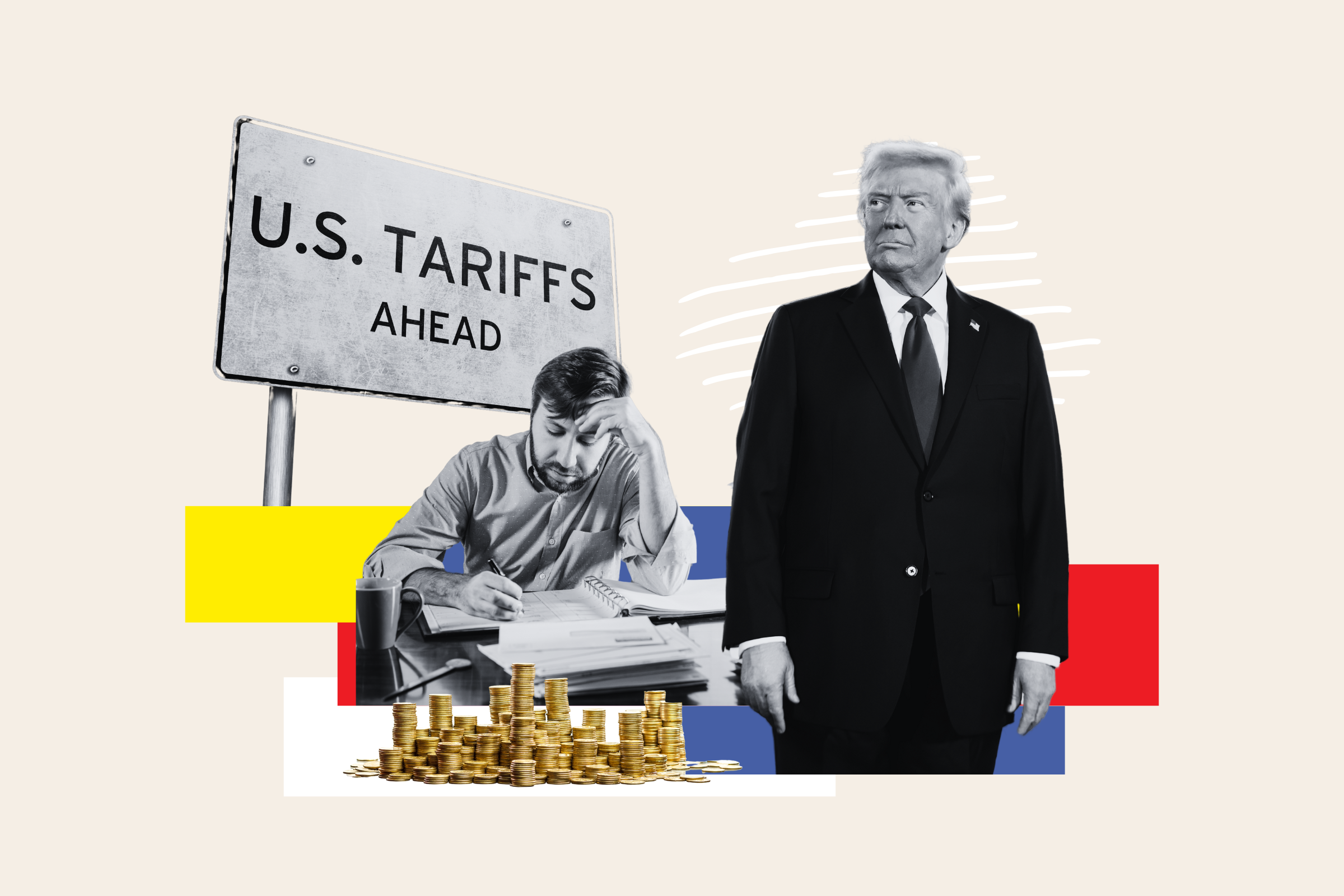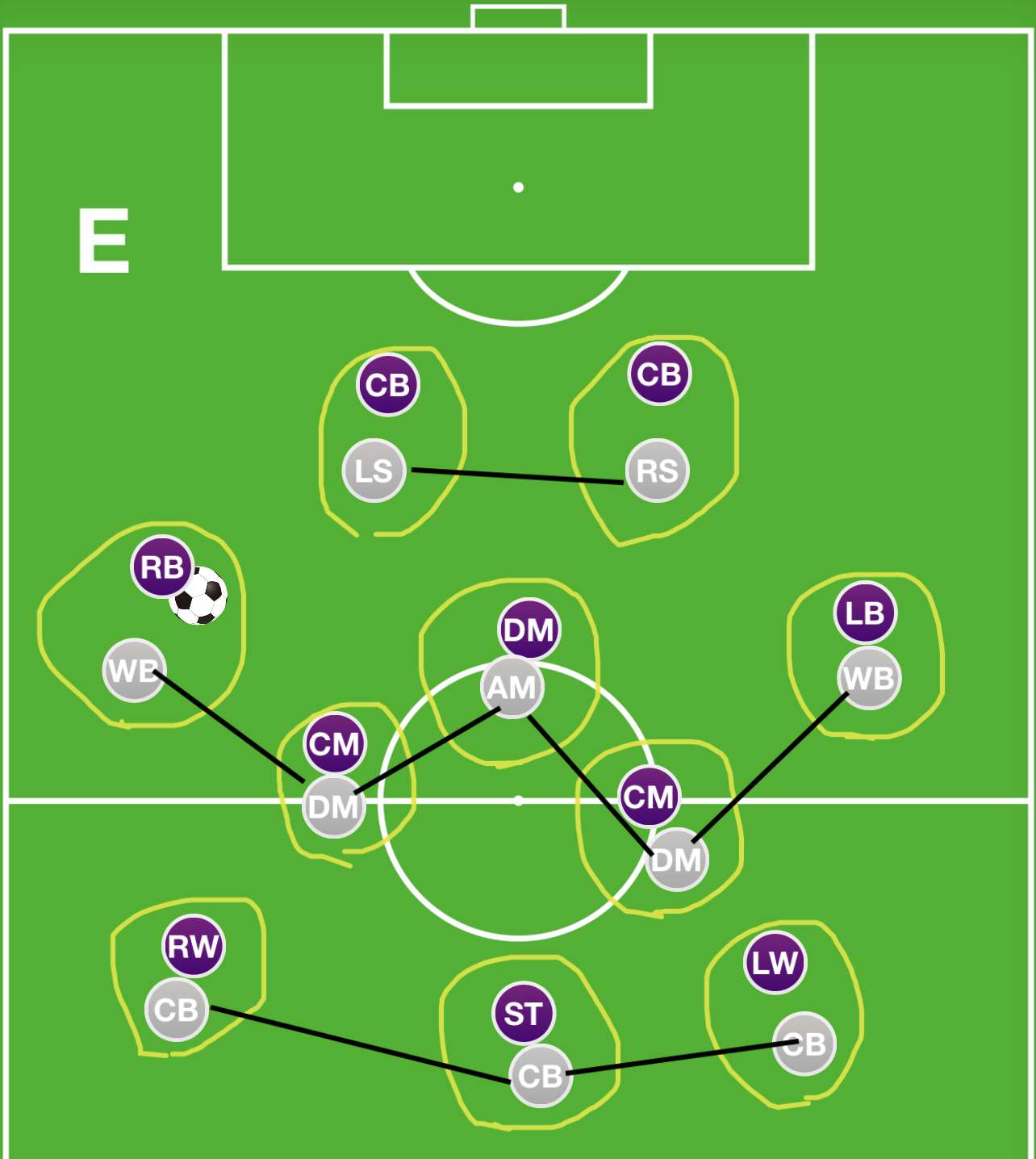ABI Research On Tech Tariffs: Unpacking The High-Stakes Impact Of The Trump Trade War

Table of Contents
ABI Research's Key Findings on the Impact of Tech Tariffs
ABI Research's comprehensive analysis reveals a multifaceted impact of tech tariffs on the global technology landscape. The trade war didn't simply result in a clear-cut set of winners and losers; instead, it created a complex web of interconnected effects, stimulating domestic production in some areas while hindering innovation and growth in others. The overall assessment paints a picture of significant disruption and adaptation within the technology industry.
-
Revenue Shifts: ABI Research reported significant percentage changes in revenues across various tech sectors. For instance, the consumer electronics sector experienced a [Insert Percentage]% decrease in revenue due to increased tariffs on imported components, while the software sector, less reliant on physical goods, experienced a comparatively smaller impact. (Note: Replace bracketed information with actual data from ABI Research reports).
-
Supply Chain Disruptions: The tariffs significantly disrupted global supply chains, forcing many companies to reassess their sourcing strategies. The reliance on specific geographic regions for manufacturing was highlighted as a major vulnerability, leading to delays and increased costs.
-
Market Share Fluctuations: The trade war led to shifts in market share among global tech companies. Some companies, with diversified manufacturing bases, were able to better withstand the impact, while others, heavily reliant on specific import sources, faced significant challenges.
-
Consumer Price Increases: ABI Research's data indicates that tech tariffs contributed to higher prices for consumers in several product categories. This impact varied depending on the product and the extent to which tariffs increased input costs.
Winners and Losers in the Tech Tariff Landscape (According to ABI Research)
ABI Research's analysis identifies clear winners and losers in the tech tariff landscape. The impact wasn't uniform across the board; some companies and sectors were better positioned to adapt and even benefit from the changing dynamics.
Winners:
-
Companies that successfully relocated manufacturing: Several companies proactively diversified their manufacturing bases, shifting production to regions outside of the affected tariff zones. This allowed them to maintain supply and avoid significant price increases.
-
Domestic manufacturers: Companies that already had established domestic manufacturing capacity saw increased demand as importers faced higher costs. This led to growth and strengthened their market positions.
Losers:
-
Companies heavily reliant on specific import sources: Companies that relied heavily on components or finished goods from tariff-affected regions experienced significant cost increases, impacting profitability and competitiveness.
-
Companies unable to pass increased costs to consumers: Some companies were unable to absorb the increased costs associated with tariffs and were forced to reduce output or accept lower profit margins.
-
Consumers: Ultimately, consumers bore some of the burden through higher prices on various tech products.
Long-Term Implications: ABI Research's Predictions for the Tech Industry
ABI Research's long-term predictions highlight a lasting impact on the tech industry's structure and global dynamics. The trade war accelerated trends already underway, such as the need for supply chain resilience and diversification.
-
Supply Chain Diversification: ABI Research projects continued investment in supply chain diversification, with companies seeking to reduce their reliance on single-source suppliers and geographic regions. This includes reshoring and nearshoring initiatives.
-
Geopolitical Shifts: The trade war highlighted the interconnectedness of global trade and the potential for geopolitical factors to significantly impact the technology industry. This is likely to lead to a reassessment of international partnerships and trade agreements.
-
Future Growth Projections: ABI Research's forecasts indicate that certain tech sectors will experience slower growth in the near term due to the lingering effects of the trade war, while others, particularly those focused on domestic markets, may experience stronger growth. (Note: Insert specific growth projections from ABI Research reports.)
Strategies for Navigating the Post-Tariff Tech Landscape (Based on ABI Research)
Based on ABI Research's findings, technology companies need to adopt proactive strategies to mitigate future trade risks. The lessons learned from the Trump trade war emphasize the importance of adaptability and foresight.
-
Supply Chain Diversification and Reshoring: Companies should prioritize diversifying their supply chains, reducing reliance on single-source suppliers and potentially reshoring or nearshoring manufacturing.
-
Automation Investments: Investing in automation can help reduce reliance on labor-intensive processes in high-tariff regions.
-
Developing New Trade Relationships: Companies should actively seek to establish relationships with suppliers and distributors in regions less susceptible to trade disputes.
-
Lobbying for Favorable Trade Policies: Engaging in policy advocacy to influence trade regulations and create a more stable international trading environment is crucial.
Conclusion: Understanding the Lasting Impact of Tech Tariffs with ABI Research
ABI Research's analysis of tech tariffs reveals a complex and lasting impact on the technology industry. The trade war spurred significant shifts in supply chains, pricing, and market dynamics, underscoring the importance of adaptability and diversification for tech companies. Understanding these impacts is crucial for businesses operating in this globally interconnected sector. ABI Research’s data provides invaluable insights into navigating the complexities of global trade and tech regulations. Learn more about the lasting effects of tech tariffs by exploring ABI Research's comprehensive reports and gain a competitive edge in this evolving landscape.

Featured Posts
-
 Lywnardw Dy Kapryw W Adryn Brwdy Bazy Dr Fylm Aywl Knywl
May 13, 2025
Lywnardw Dy Kapryw W Adryn Brwdy Bazy Dr Fylm Aywl Knywl
May 13, 2025 -
 Kyle Tucker Trade Speculation A Cubs Fan Perspective
May 13, 2025
Kyle Tucker Trade Speculation A Cubs Fan Perspective
May 13, 2025 -
 Den Of Thieves 2 Gerard Butlers Return Fuels Franchise Excitement
May 13, 2025
Den Of Thieves 2 Gerard Butlers Return Fuels Franchise Excitement
May 13, 2025 -
 Kean Jadi Pahlawan Fiorentina Taklukkan Atalanta 1 0
May 13, 2025
Kean Jadi Pahlawan Fiorentina Taklukkan Atalanta 1 0
May 13, 2025 -
 Atalanta Vs Lazio Fecha Hora Y Transmision Serie A 2025
May 13, 2025
Atalanta Vs Lazio Fecha Hora Y Transmision Serie A 2025
May 13, 2025
